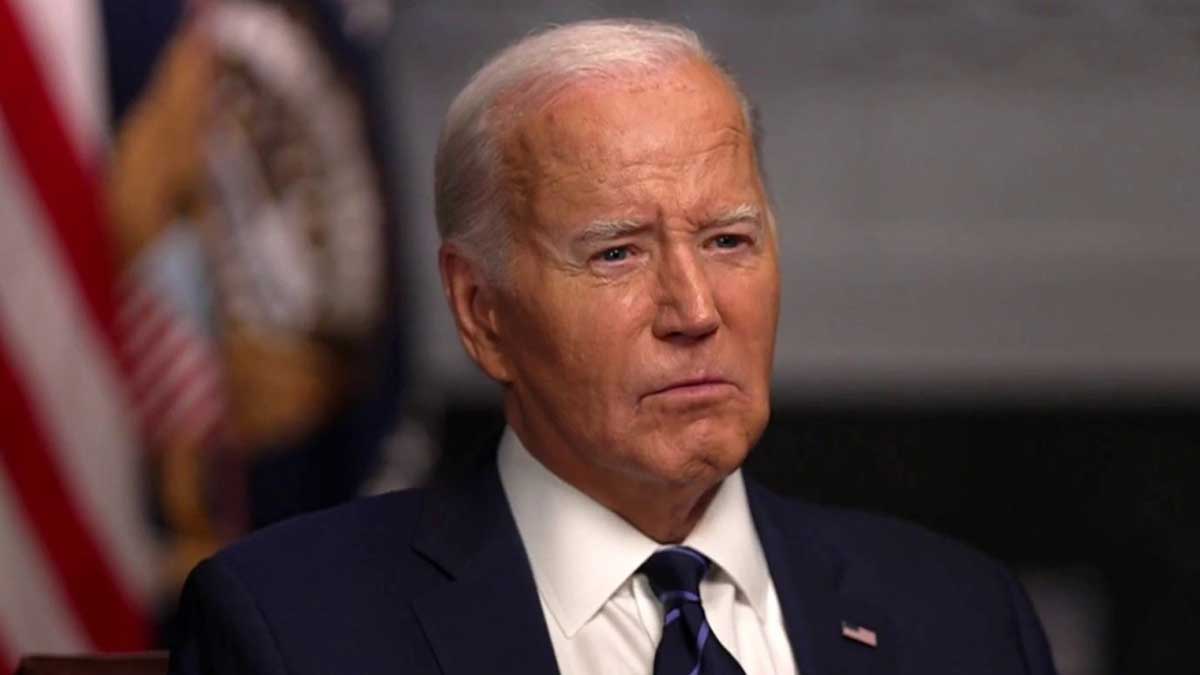- Home
- Billionaires
- Investing Newsletters
- 193CC 1000
- Article Layout 2
- Article Layout 3
- Article Layout 4
- Article Layout 5
- Article Layout 6
- Article Layout 7
- Article Layout 8
- Article Layout 9
- Article Layout 10
- Article Layout 11
- Article Layout 12
- Article Layout 13
- Article Layout 14
- Article Sidebar
- Post Format
- pages
- Archive Layouts
- Post Gallery
- Post Video Background
- Post Review
- Sponsored Post
- Leadership
- Business
- Money
- Small Business
- Innovation
- Shop
Recent Posts
Biden Regrets ‘Bullseye’ Comment on Trump

President Joe Biden has recently faced intense criticism for his choice of words in a private call with donors, where he used the term “bullseye” in reference to former President Donald Trump. During an interview with NBC’s Lester Holt on Monday, Biden acknowledged that this language was a “mistake.” The remark has come under scrutiny in light of an attempted assassination of Trump that occurred on Saturday, leading to accusations from Republicans that Biden’s comment might have incited violence against his predecessor.
In the call, Biden had used the term “bullseye” while discussing strategies to shift focus from his own recent debate performance to a critique of Trump’s policies and rhetoric. He asserted that his intention was not to provoke any violence but to encourage others to focus on Trump’s controversial statements and actions. Biden explained that he did not mean to suggest any form of violent targeting, such as “crosshairs,” but rather to emphasize a strategic focus on Trump’s record and controversial positions.
The backlash against Biden’s comment intensified following the attempted assassination of Trump during a rally in Butler, Pennsylvania, on Saturday. Trump was shot in the right ear, with photographs from the scene showing a bloodied ear and streaks of blood down his face. The attack resulted in the death of one rally attendee and serious injuries to two others. The violent incident has prompted a reaction from several Republican figures, who have accused Biden of indirectly inciting violence with his “bullseye” remark.
Republican leaders, including Representative Lauren Boebert of Colorado and Trump’s campaign manager Chris LaCivita, have condemned Biden’s choice of words. Boebert specifically suggested that Biden’s comments could be seen as contributing to the attempted assassination, a claim that Biden has firmly rejected. The controversy has been fueled further by unfounded allegations from Representative Mike Collins of Georgia, who tweeted that Biden might have been involved in orchestrating the attack. This accusation has been widely discredited but adds to the charged political climate surrounding the incident.
Biden responded to questions about whether his comments could incite individuals who might be unstable by asserting that he has not engaged in rhetoric intended to provoke violence. Instead, he used the opportunity to criticize Trump’s own inflammatory statements, including a remark by Trump about a potential “bloodbath” if he loses in November. Trump has since clarified that this comment was meant to refer to the future of the auto industry rather than political violence.
In his call with donors, Biden emphasized his commitment to defeating Trump in the upcoming election, stating, “I have one job, and that’s to beat Donald Trump. I’m absolutely certain I’m the best person to be able to do that. So, we’re done talking about the debate; it’s time to put Trump in a bullseye.” This statement, quoted by Politico, has been criticized for its choice of words in the context of the recent violent attack.
Polling data reveals that Trump currently leads Biden by an average of 2.7 points nationally in a head-to-head matchup. This marks a 1.2-point increase for Trump since their last debate, reflecting the shifting dynamics in the presidential race. The political fallout from the attempted assassination and the controversy over Biden’s remarks continue to shape the electoral landscape and influence public perception of both candidates.
In conclusion, Biden’s use of the term “bullseye” has sparked a significant political controversy, exacerbated by the recent violent attack on Trump. The situation highlights the tense and polarized nature of the current political climate, with both parties grappling with the implications of recent events and statements.
Recent Posts
Categories
- 193cc Digital Assets2
- 5G1
- Aerospace & Defense46
- AI37
- Arts3
- Banking & Insurance11
- Big Data3
- Billionaires449
- Boats & Planes1
- Business328
- Careers13
- Cars & Bikes76
- CEO Network1
- CFO Network17
- CHRO Network1
- CIO Network1
- Cloud10
- CMO Network18
- Commercial Real Estate7
- Consultant1
- Consumer Tech180
- CxO1
- Cybersecurity68
- Dining1
- Diversity, Equity & Inclusion4
- Education7
- Energy8
- Enterprise Tech29
- Events11
- Fintech1
- Food & Drink2
- Franchises1
- Freelance1
- Future Of Work2
- Games141
- GIG1
- Healthcare78
- Hollywood & Entertainment186
- Houses1
- Innovation42
- Investing2
- Investing Newsletters4
- Leadership65
- Lifestyle11
- Manufacturing1
- Markets20
- Media193
- Mobile phone1
- Money13
- Personal Finance2
- Policy567
- Real Estate1
- Research6
- Retail1
- Retirement1
- Small Business1
- SportsMoney33
- Style & Beauty1
- Success Income1
- Taxes2
- Travel10
- Uncategorized8
- Vices1
- Watches & Jewelry2
- world's billionaires418
Related Articles
Trump Moves $4B Stake in Truth Social Parent, Stock Drops 6%
Donald Trump recently transferred his 57% stake in Trump Media & Technology...
By 193cc Agency CouncilDecember 20, 2024House Rejects Trump-Backed Funding Bill, Shutdown Looms
The U.S. House of Representatives rejected a new government funding bill on...
By 193cc Agency CouncilDecember 20, 2024Trump Named Time’s Person of the Year for Second Time
On Thursday, Time magazine honored Donald Trump as its “Person of the...
By 193cc Agency CouncilDecember 12, 2024Meta Donates $1 Million to Trump’s Inaugural Fund
Meta, the parent company of Facebook and Instagram, has confirmed a $1...
By 193cc Agency CouncilDecember 12, 2024















Leave a comment